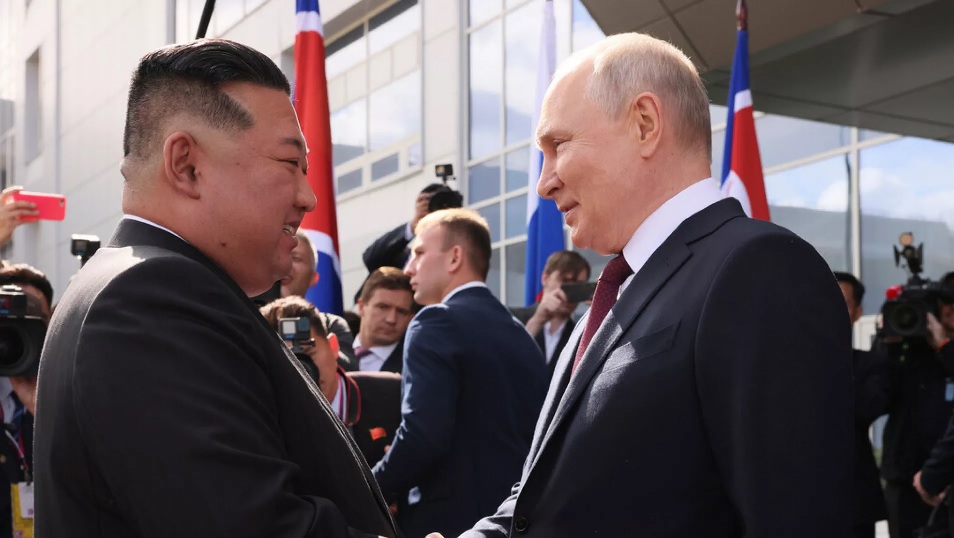Missile Deals and Troop Deployments Shape a Dangerous Alliance
Weapons for Troops: The Exchange Unfolds
Russia has reportedly supplied North Korea with advanced air defense missile systems in exchange for deploying North Korean troops to the Russian war effort in Ukraine. According to South Korean National Security Adviser Shin Wonsik, these missile systems bolster Pyongyang’s air defense network. While Shin did not specify the types of missiles, experts like Lee Illwoo suggest the S-400 long-range surface-to-air missiles are among the likely transfers. These sophisticated systems, though advanced, may not significantly enhance North Korea’s defense capabilities against modern threats, given Russia’s struggles against Ukrainian drone attacks.
Oil and Arms: The Economic Angle
Beyond missile transfers, Russia is supplying North Korea with economic support, including vital oil shipments. Satellite images analyzed by Open Source Centre reveal over 43 trips by North Korean oil tankers to Russian ports in the past eight months. British Foreign Secretary David Lammy suggested these oil deliveries act as payment for weapons and troops sent by Pyongyang to assist Moscow. The oil shipments underscore the depth of this burgeoning partnership, with North Korea leveraging its support for material gains to sustain its isolated economy.

Escalating Risks in the Ukraine Conflict
North Korea’s deployment of over 10,000 troops, with some engaged in frontline combat, has heightened tensions in the Ukraine conflict. This development marks an escalation that could prolong the war and further destabilize global security. Experts warn that Russia’s continued collaboration with Pyongyang risks transferring sensitive military technologies that could enhance North Korea’s nuclear and missile capabilities. While these transfers appear limited for now, any significant leap in North Korea’s strategic arsenal would pose serious threats to South Korea, the United States, and other regional powers.
North Korea’s Military Aspirations
North Korea is striving to modernize its outdated air defense system, which has long been considered vulnerable. Acquiring systems like the S-400 and potential counter-drone equipment from Russia indicates an urgent effort to address this gap. However, substantial upgrades would require extensive external support and time. Russia’s offer to assist with satellite development further exemplifies their deepening military cooperation. While North Korea has placed a spy satellite in orbit, experts doubt its effectiveness for military purposes. These technological pursuits align with Pyongyang’s broader ambition to counter the superior air and surveillance capabilities of South Korea and the United States.
The growing military and economic ties between North Korea and Russia reflect a strategic alliance against shared adversaries. While the current exchanges—troops for weapons and oil—serve immediate needs, they also raise global concerns about the long-term implications. Enhanced military capabilities for North Korea could shift the balance of power in Northeast Asia, while the continued troop deployment exacerbates an already volatile conflict in Ukraine. International monitoring and strategic responses will be crucial to managing the risks posed by this partnership.
Our Visitor






 Users Today : 42
Users Today : 42



